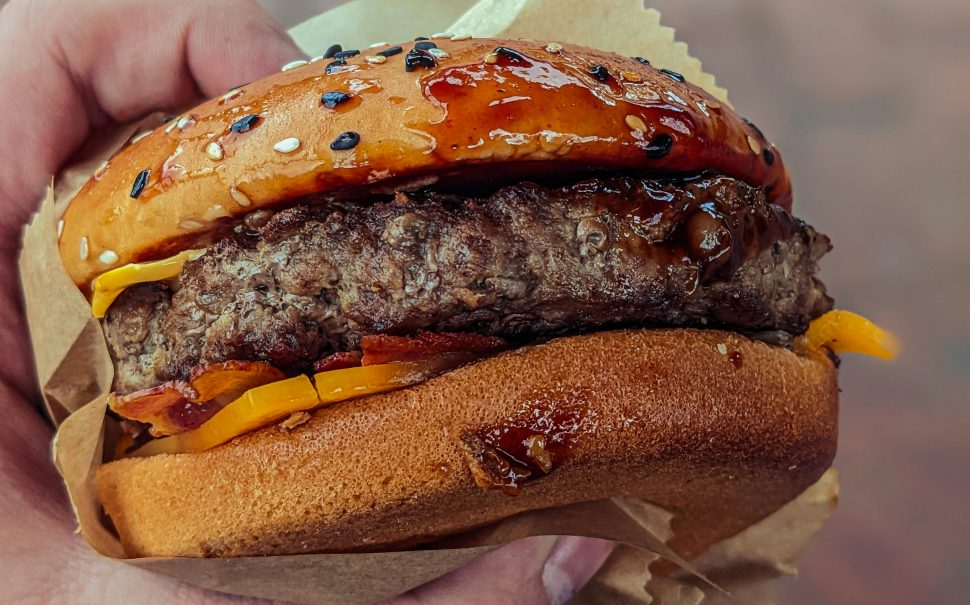When you think of Wigan, you might think of rugby league. Eating a pie on a barm. George Formby. But this year, you can add poor food hygiene to the list.
The borough of Wigan has the lowest average food hygiene rating in Greater Manchester, according to data from the Food Standards Agency (FSA) analysed by Mancunian Matters in November.
The FSA is a government body that gives businesses that serve food an overall rating from zero (“urgent improvement is required”) to five (“hygiene standards are very good”).
These ratings are based on how businesses score in three areas – Food Safety and Hygiene (how hygienically food is handled, cooked and stored), Structural Requirements (structure of building, cleanliness, layout, lighting, ventilation), and Confidence in Management (keeping records and track record of compliance with hygiene standards).
Wigan’s average food hygiene rating of 4.1 pales in comparison to those of Stockport, Trafford and Bury, who all scored higher than 4.6.
A similar study by training provider High Speed Training looked at UK towns and cities, and found the town of Wigan had the lowest average food hygiene rating of any town in the UK, using data from March 2024.
Wigan has the highest proportion of food businesses that “require improvement”
A food hygiene score from zero to two indicates that businesses need to make improvements. A score of zero calls for “urgent” improvement, scoring one requires “major” improvement, and two, “some” improvement.
As well as having the lowest average hygiene rating, Wigan has the highest proportion of businesses with scores of zero, one or two of any Greater Manchester borough.
Just over half of the food businesses in Wigan were rated five – while in Trafford, over 80% achieved the top rating.
Food poisoning costs the UK approximately £9.1 billion a year, according to a 2018 study by the FSA and London School of Hygiene & Tropical Medicine, revealing the importance of proper food hygiene.
More than one in eight food businesses in Wigan have not yet been inspected
More than one in eight food businesses in Wigan are awaiting inspection – a high proportion for a borough afflicted by poor food hygiene.
Businesses are classed as “awaiting inspection” if they have never been inspected, or if they have not yet been inspected after a change of ownership.
Fig 3: Percentage of businesses in Wigan with a food hygiene rating from zero to five, and percentage awaiting inspection
The problem of low inspection rates does not just affect Wigan – in Bolton almost one in six businesses do not have a hygiene rating.
If food inspectors find that businesses have committed serious food hygiene or food safety offences, they can be fined or prosecuted. Rachel Adamson, founder and Head of Fraud and Regulatory at Adkirk Law, regularly represents businesses who find themselves in this situation.
Adamson said low food hygiene ratings have a “very big negative impact” on businesses, and that businesses struggle to defend themselves against hygiene-related legal action.
Adamson said: “To be honest, they are often not successful.”
Gaz Williamson, the pub landlord of The Caledonian in Wigan, received a food hygiene rating of two back when his pub contained an operational kitchen.
Williamson says The Caledonian no longer serves food, other than pre-packaged items like crisps, so he “doesn’t really care” about his low rating – he’s more concerned about the system itself.
The Caledonian is located in Ashton-in-Makerfield, a Wigan town where one in ten food businesses have been told by the FSA to improve their hygiene. As Williamson puts it: “There’s a lot of dodgy places round there.”
The Caledonian was inspected in June. Williamson says that he was unfairly caught out because the food safety officer arrived unannounced – and believes he was marked down for details which bear little relevance to food hygiene.
Williamson said: “We’d only been in there two weeks, and they marked us down for not having a sink behind the bar.
“The hot water wasn’t turned on when they first came round because we open at five o’clock in the week, and they came round at half past three.”
The landlord said: “It just didn’t make sense, the way they go about it.
“And I had quite a few arguments with them because instead of trying to work with people, they’re trying to catch people out.
“When they came back to revisit they were satisfied with everything – but what you’ve then got to do, if you want a rescore, is pay some money.”
Businesses who are not satisfied with their ratings can ask to be re-inspected after they have made the necessary changes. However, most local authorities, including Wigan Council (who oversee food safety inspections in Wigan), charge a fee if businesses want to be re-inspected before their next planned inspection date. Williamson calls this aspect of the system a “scam”.
Williamson also said Wigan Council should make the regulations more clear to businesses than they currently do.
Williamson added: “The organisation should focus more on working with companies, rather than working against them and trying to catch them out, using that as a platform to then churn more money out of people.
“Business is hard enough without authorities of every angle coming at you, ‘We want more money for this, we want more money for that.’
“We should be working together as a council and a community, and it’s not like that in Wigan.”
Julie Middlehurst, assistant director for infrastructure and regulation at Wigan Council, mentioned that there is an appeals process available for businesses to dispute their food hygiene rating.
Middlehurst chalked up Wigan’s low food hygiene rating to the borough’s high proportion of takeaway restaurants, but added: “While support is offered, it is the responsibility of the business owner to ensure that they are complying with the regulations and standards.
“Ensuring food hygiene and safety standards are met and upheld for consumers is important and we work with and support businesses to ensure that regulations are understood and adhered to.
“Businesses can also follow an appeals process if they wish to dispute the rating given by an inspecting officer.”
Featured image by Hexandcube on Unsplash




